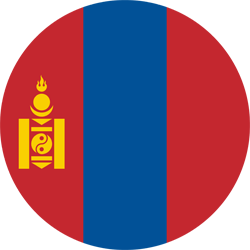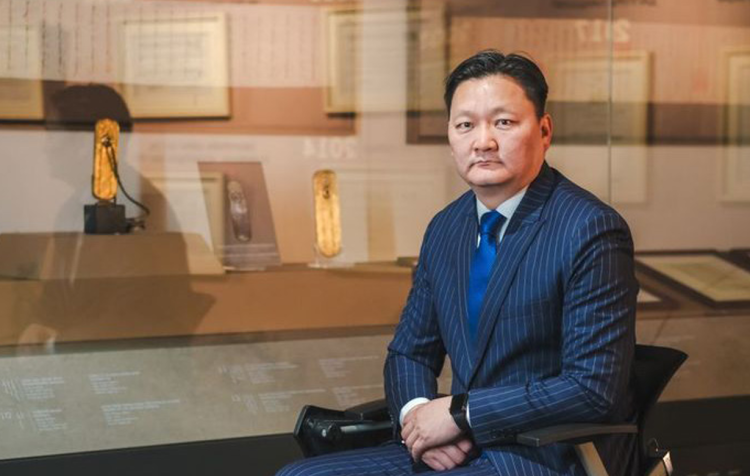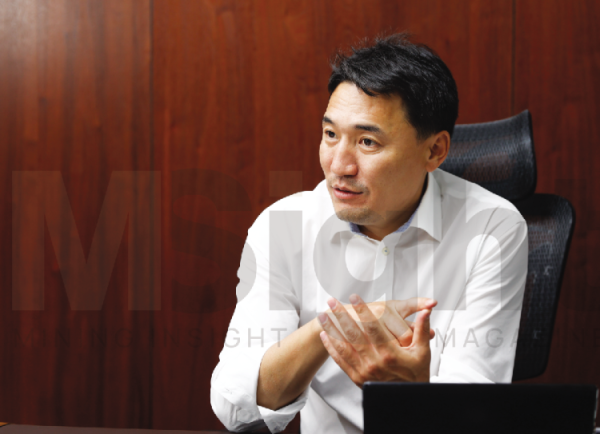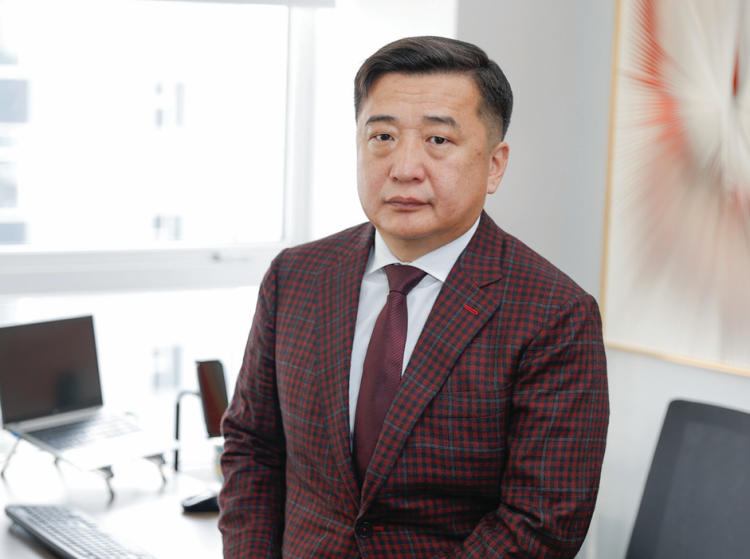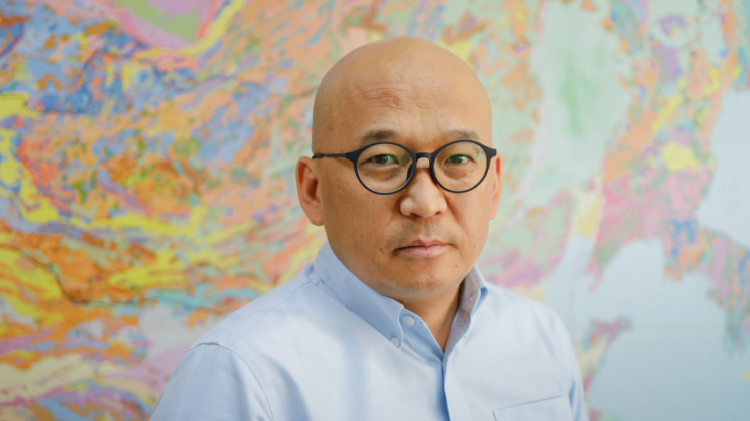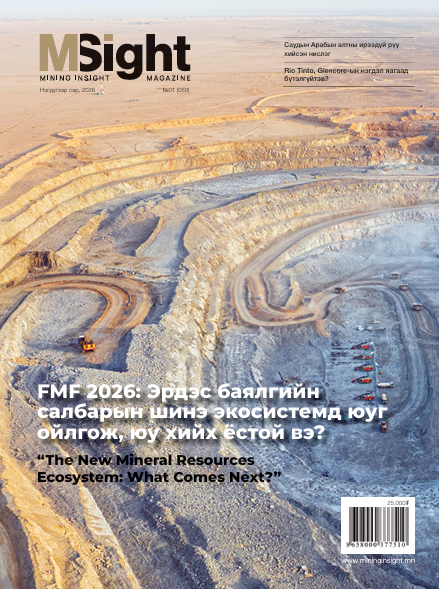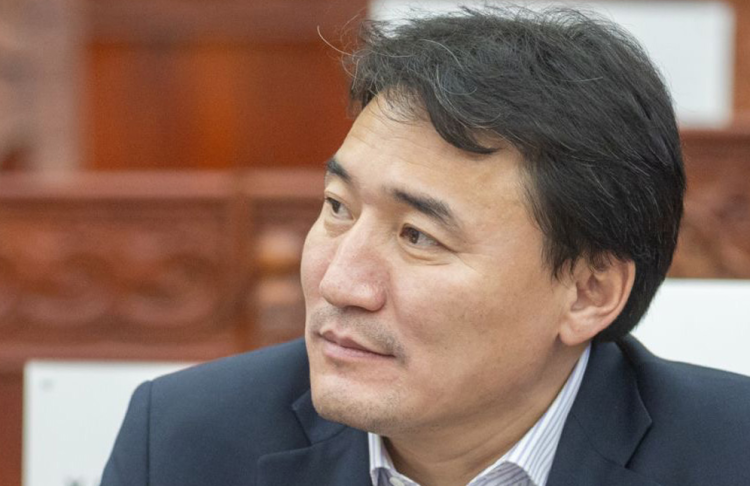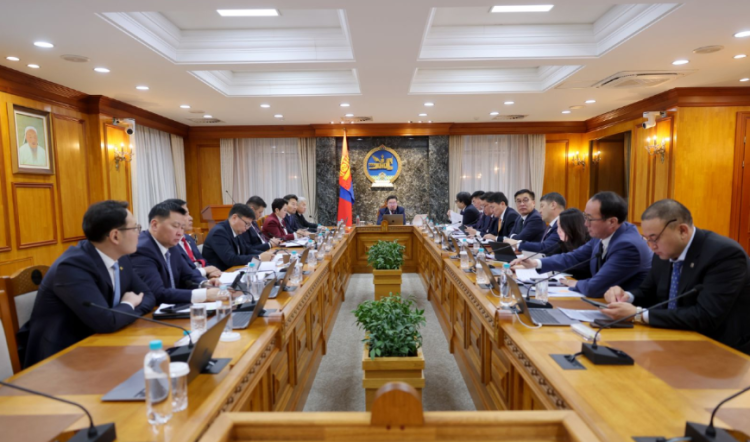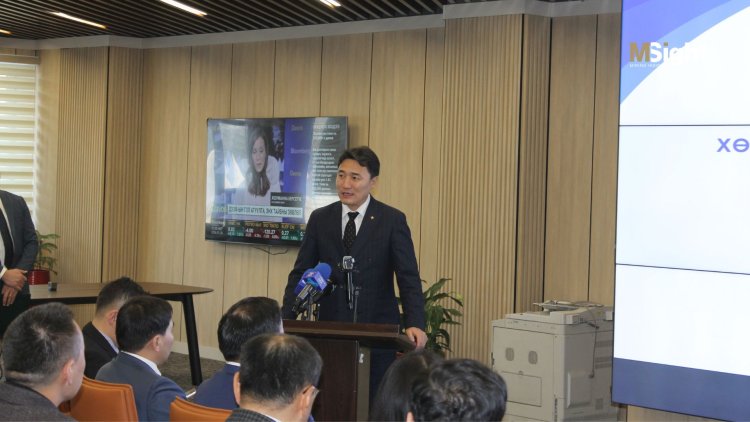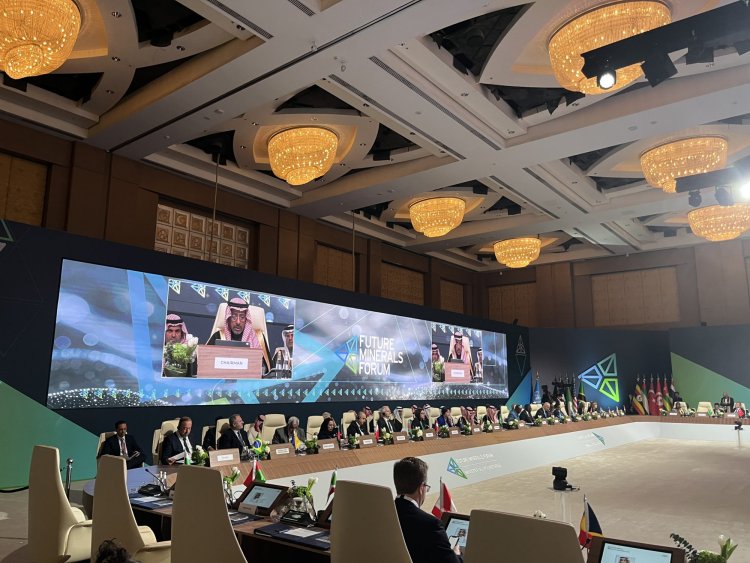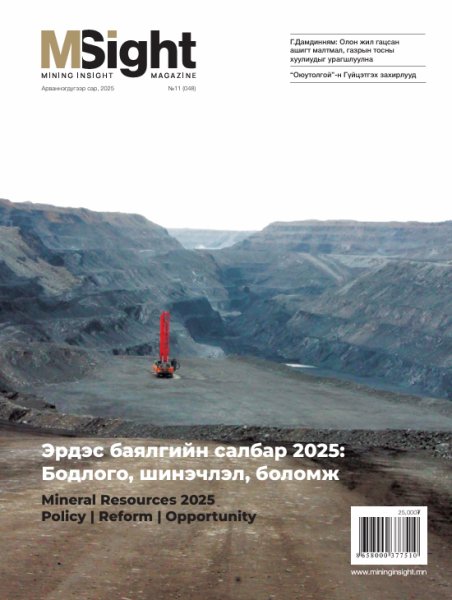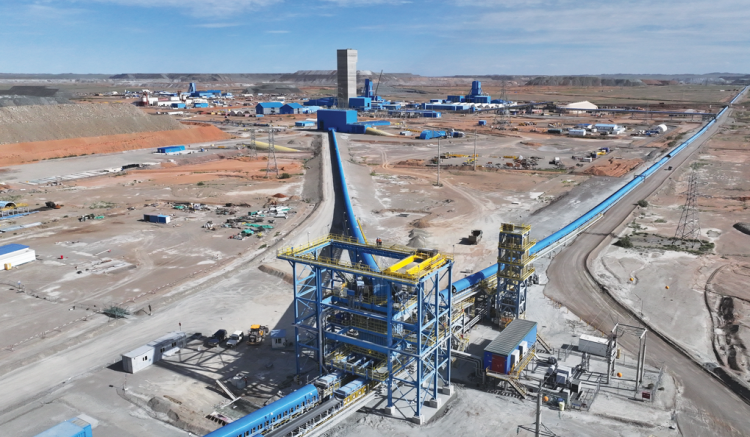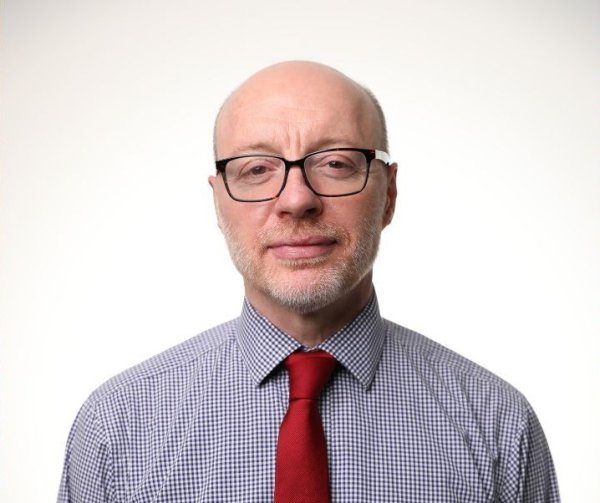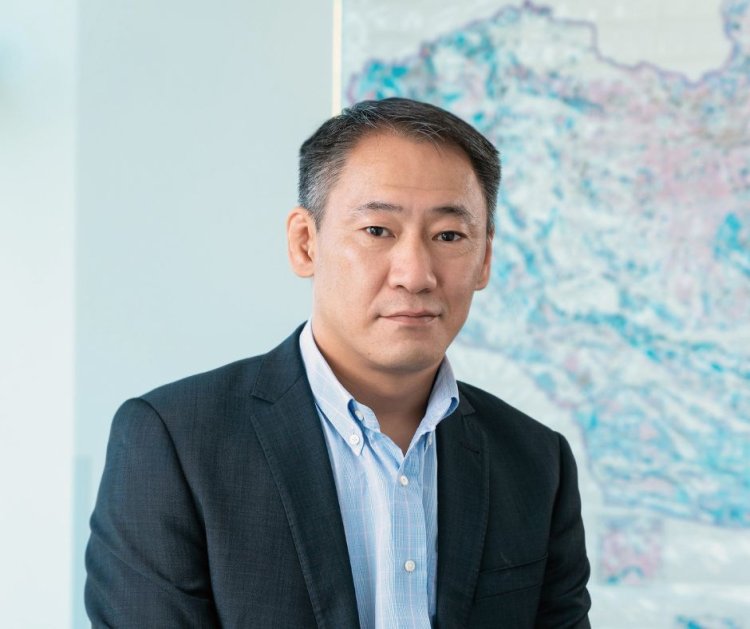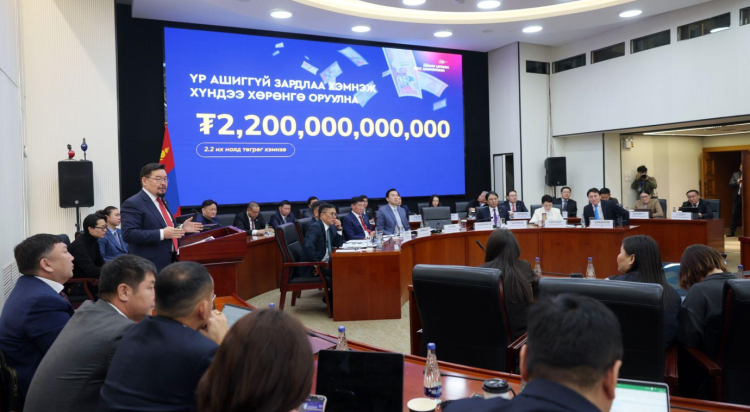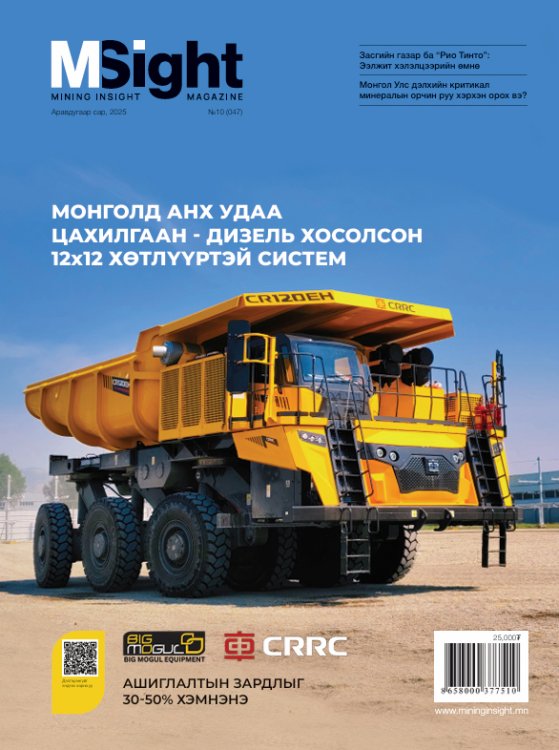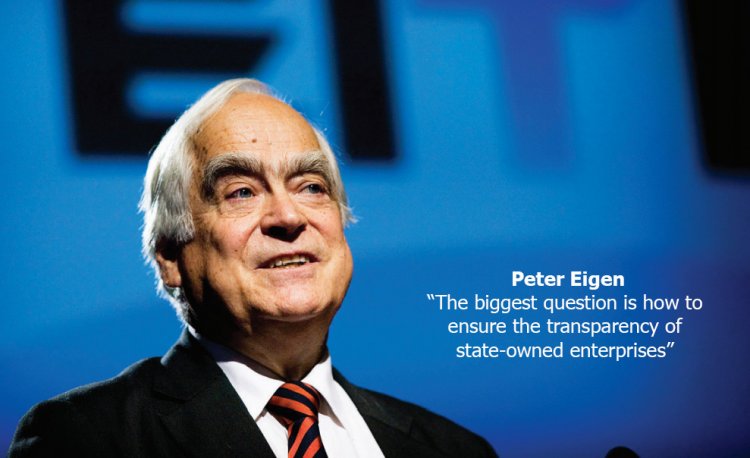 Prof. Dr. Peter Eigen began his campaign to fight against corruption while he was working as a Program Manager at the World Bank. However, he had to quit his job to focus on the campaign as it was rejected by the management, and founded the “Transparency International” in 1993. He is the founder of a large anti-corruption organization with 30 years of experience and National Chapters in 110 countries. Furthermore, he has rich experience in developing the first concept, founding, and managing the “Extractive Industries Transparency Initiative”. Mining Insight’s O.Batbold sat with him for an interview in Berlin.
Prof. Dr. Peter Eigen began his campaign to fight against corruption while he was working as a Program Manager at the World Bank. However, he had to quit his job to focus on the campaign as it was rejected by the management, and founded the “Transparency International” in 1993. He is the founder of a large anti-corruption organization with 30 years of experience and National Chapters in 110 countries. Furthermore, he has rich experience in developing the first concept, founding, and managing the “Extractive Industries Transparency Initiative”. Mining Insight’s O.Batbold sat with him for an interview in Berlin. You have accumulated valuable experience in creating and leading international anti-corruption initiatives and programs while you were working in the economic development and governance sectors. In particular, you founded Transparency International and chaired its Board for 12 years, and later its Advisory Board. Has Transparency International developed into a good anti-corruption platform? What is the impact and strength of this organization?
The main goal of founding Transparency International (TI) was to make international corruption illegal. Foreign bribery wasn’t considered a crime in Germany and most member countries of the Organization for Economic Cooperation and Development (OECD)’s. In other words, foreign bribery was legal in these countries. Foreign bribery was even deductible from taxable income at the time. The World Bank was overlooking this issue in countries where it operates, considering them a regular practice back then. For example, the Criminal Code and other related laws in Germany were designed to protect the independence and integrity of the German civil service. In the beginning, we faced a lot of difficulties and struggles because German Chancellor Helmut Kohl and his government were hesitant to change. However, as a result of our awareness campaign that shed light on the dangers of corruption by numerous German enterprises, companies such as Siemens began to support our initiative, saying that they want to run business in a corruption-free international market. Subsequent meetings at the Aspen Institute in Berlin with representatives of Government, Business and ourselves as Civil Society – chaired by former German President Richard von Weizsдcker - led German signature of the OECD Convention against foreign bribery and to major reforms in 1999 that brought changes to German legislation. Shortly afterward, the United Nations created its Convention against Corruption, and organizations such as the World Bank began to fight corruption in its operations. This change was the result of a great struggle. But it has been done together, with the participation of governments, large companies, and civil society in many parts of the world. At the same time, Transparency International became more technocratic and many new chapters began to emerge. These national chapters are independent NGOs carrying the responsibility for fighting corruption in their own societies, with the technical support and advice from the international secretariat in Berlin. They have been able to independently diagnose the root causes of corruption in their country and have become the key element of this organization. After the Arab Spring of 2010, we grew very fast playing the intermediary role for donor organization with more than 160 employees, as facilitator to channel financial support through our network. As a result, more responsibility was assumed by the secretariat as the TI center, and by 2015, it faced an internal crisis of leadership change and restructuring. A few years later, under the able leadership of Delia Ferreira, as chair, and Daniel Erikson, as Managing Director, TI has overcome the crisis and is moving forward with its operations effectively.
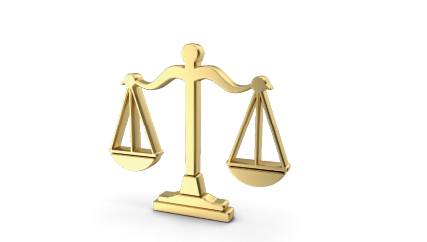 What are the biggest challenges in fighting corruption? How should these issues be addressed?
What are the biggest challenges in fighting corruption? How should these issues be addressed?Those who plan out corruption schemes are also very “smart”. They continue to see the loopholes in the anti-corruption systems to give and take bribes. For example, we have not been able to establish an effective anti-money laundering system. The same is true for disclosing the beneficiary ownership of companies. A lack of commitment is a major obstacle in areas where money laundering is rampant. The International Anti-Corruption Conference held in London in September 2020 provided support to tackle some of these issues.
However, disclosure of beneficial owners remains an issue not only in offshore areas but also in some developed countries.
Western sanctions against Russian oligarchs still fall short of taking full effect due to the uncertainties regarding property and beneficiary owners.
The mining industry is Mongolia’s key economic sector. There is a widespread perception that the sector is prone to corruption. As a mineral-based developing country, what efforts should we make in this direction?
There are many situations directly vulnerable for corruption, such as government licensing and oversight of the mining sector. While various measures can be taken to keep them free of corruption, the most important thing is to involve civil societies at the local, national, and international levels. Civil society participation in the fight against corruption in all sectors, not just mining, should be encouraged. The government needs to be transparent from the moment it negotiates with investors in major mining projects. Transparency limits the possibility of over-authorization and compromise, and what is agreed must be open to the public. This not only prevents bribery but also prevents stakeholders from engaging in harmful activities. At the same time, it is important to improve and support the participation of international and domestic civil societies. In dictatorships, the inability of civil societies to function freely is the basis for the authorities to act arbitrarily and for corruption to flourish. Increasing financial transparency through multi-stakeholder approaches like the Extractive Industries Transparency Initiative (EITI) is an important way to combat corruption.
In recent years, the contribution and role of state-owned mining companies in the economy have become significant in our country. Control over the expenses of state assets is weak and ineffective. In this case, how should the monitoring mechanism work?
First of all, the government is often a bad manager. The government is sometimes weaker in its knowledge and experience than companies in the sector or civil societies. The mining sector is largely dependent on high technology. Therefore, first of all, they must have a professional and independent team to effectively manage projects. Regardless of the ownership status of the company, the professional status of the management and its information must be transparent. There are successful projects between the government and foreign investors. In Botswana, for example, there is a good practice of diamond mining where the government owns a 50 percent stake and the investor owns the other half. At first, there were fears that in case of disagreements between the two sides, there would be inaction. But the example of Botswana the two sides managed to work together. This has the advantage of allowing each other to monitor the other side and ensure transparency. John Kenneth Galbraith’s 1966 book, “The New Industrial State”, argued the importance of rather powerful, independent management regardless of ownership: state of millions of shareholders. Hence decisive is the management control, not so much the ownership of mining ventures It is doubtful that the government will be able to solve all problems better than private business. The government needs to make it clear that it can manage and monitor mega projects in a transparent and accountable manner. Even large financial regulators make mistakes in their inspections, and it is questionable how the government of a developing country will be able to carry out such projects and how other government agencies will be able to monitor the business. A multi-stakeholder approach, like EITI, to establishing the enabling environment in the interest of all parties is most effective.
In addition, state-owned companies are usually run by a small number of people in the country. In such cases, the biggest question is transparency. It is not enough to have good legislation in place. You need to have a good Integrity System, giving a strong voice to viable and capable civil society organizations.
How do we develop more effective cooperation between stakeholders?
Cooperation between stakeholders is important in all development activities, including mining, and is the basis for development. It is important that the rules of cooperation are clear and the powers are equal. The EITI is a good example in the extractive industries sector. When the initiative was first launched and funding was under discussion, many people opposed the idea of receiving funding from mining companies. Our success relies on financing from multiple channels. Regardless of the source of funding the decision-making process in membership meetings and in the board in is designed on the equal voting power of the three stakeholder groups. This is also crucial for ensuring independence. Through this process, the parties are forced to listen to each other and understand their mutual interests. This brings about a modicum of concensus and cooperation between stakeholders providing ample opportunity for common advice to support government as legitimate authority – at least in democracies - to take decisions in the common interest.
Mining Insight Magazine, September 2022
